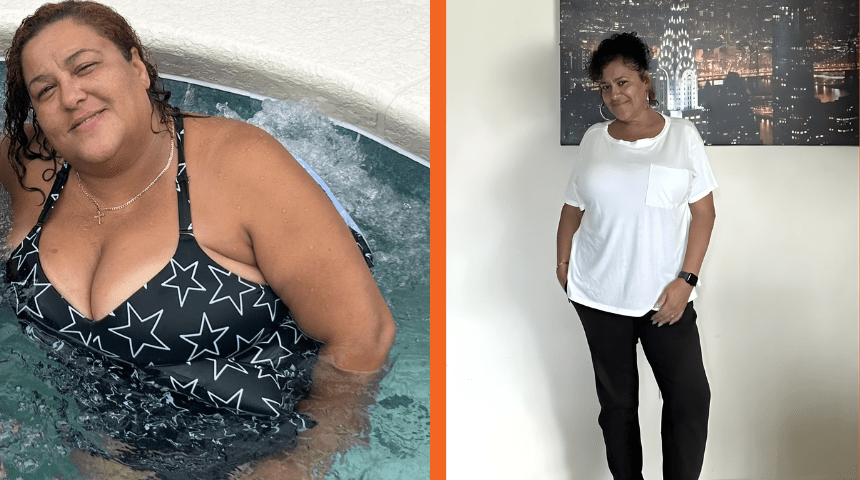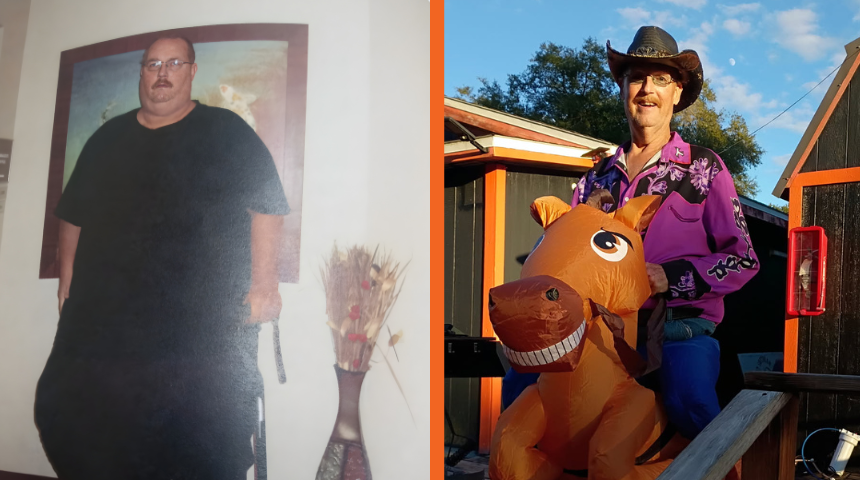Aphasia took his speech. Hard work is giving it back
By Tod Caviness, Editorial Contributor
“Shut up has never been in my vocabulary,” says David Keffler with a laugh. And even though it takes him a little longer these days to get the words out, they are as true as they’ve ever been.
For decades, Keffler, 62, had a career in banking and made the most of his down time by traveling extensively. He has been to the South Korea, Thailand, the Philippines and points beyond, and if there is one quality that has served him well no matter where he finds himself, it’s his gift of gab.
With a gentle smile and hearty laugh, it’s hard to imagine Keffler going anywhere and not coming back with a new friend or two. In fact, 25 years ago he returned from a trip to Hawaii with something even better: A fiancée. His future wife, Leslie, even turned out to be an airline worker, so Keffler’s travel plans didn’t miss a beat after their wedding. Along the way, they had two sons, who are now grown.
Of course, his journey hasn’t always been smooth. In the last 20 years, Keffler has suffered seven strokes, some of which landed him in a wheelchair with neuropathic issues. With hard work and therapy, Keffler says that almost all the physical effects of his strokes were resolved– until his most recent one. In October 2023, he woke to find himself stricken with aphasia, a language disorder that hit this gregarious traveler with cruel irony.
Life Suddenly on Mute

“It's a communication impairment that can really be devastating,” explains Taylar Johnson, a speech pathologist at the Orlando Health Advanced Rehabilitation Institute. “Aphasia is so frustrating because you know what you want to say, but you're having a hard time telling people what you want to say. It's not an intellectual impairment. It's a language challenge.”
In Keffler’s case, the effects were immediate and severe. His most recent stroke occurred at night, and by the morning after, he could not even say his first and last name.
Keffler had a good idea what was happening to him. He had been afflicted with a milder version of aphasia after his fourth stroke, but this time, he knew his road to recovery would need professional help. In February, he began working with Johnson at Orlando Health.
Learning To Speak Again
Before Johnson could develop a therapeutic strategy, she needed to make a diagnosis – and at first, the news was not good. It turned out that David was suffering from not only transcortical motor aphasia but a condition called apraxia of speech. Aphasia affects the brain’s ability to process language, while apraxia is a motor disease. The aphasia makes it difficult for Keffler to retrieve a certain word from his brain, but even if he can do so, the apraxia hinders his physical ability to say it.
These conditions can be heartbreaking for anyone, and they’re especially frustrating for someone who takes joy in conversation. Luckily, Johnson had one of the best tools she could hope for: A patient who was willing to do the work.
Twice a week, Keffler retrains his brain with Johnson, who uses a variety of therapies that include showing Keffler images and challenging him to come up with the words that describe them. He deals with his aphasia by writing new sentences, then chips away at the apraxia by saying those sentences repeatedly out loud.
Most people who suffer from all types of strokes, they give up. They give up. I fight. – David Keffler
“The brain is what we call neuroplastic,” says Johnson, “so we are able to learn new things all the time. And sometimes the brain can recruit other parts of the brain to help do those tasks that he used to do in that area affected by a stroke.”
Keffler builds on that work at home, speaking and reading as much as he can. His conversational “sparring partner” is his wife, Leslie, who has been essential in his ongoing recovery.
“He’s got great family support, which helps a lot” says Johnson. “When I say he could talk to a wall, even with this circumstance …” she laughs. “I mean, he does not meet a stranger. He works hard to get out what he wants to say.”
“Speech therapy is so important,” agrees Keffler, who praises “the best caregivers on the planet” at Orlando Health. . “I can't tell you how critical it is.”
‘I Fight’
Since that first visit to Orlando Health in February, Keffler’s condition has progressed from transcortical motor aphasia to anomic aphasia, a milder form. Today, he can not only say his name but converse, albeit haltingly. His end goal is to get back to his normal mode of speech, the same as he did when he was first stricken with aphasia. He’s done it before, after all – and both therapist and patient believe he can do it again. For now, every word that Keffler gets out is a struggle, but you can tell that for this world traveler, it’s worth it.
Speaking of travel, Keffler and his wife are still on the move. They hope to soon visit Luxembourg, the country where Keffler’s grandfather was born.
“Most people who suffer from all types of strokes, they give up,” says David. “They give up. I fight.”




